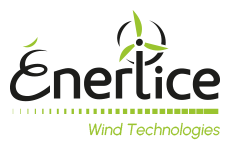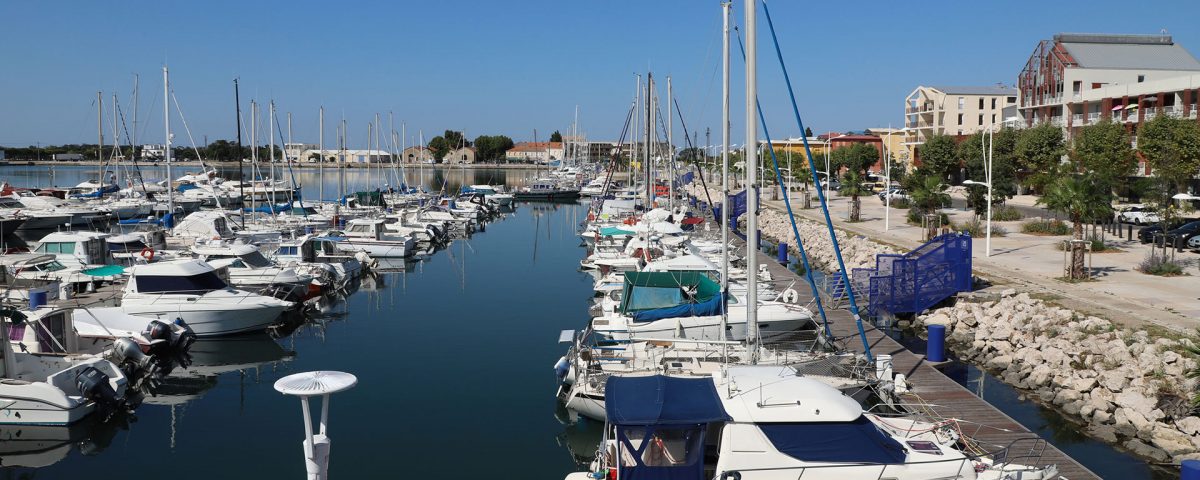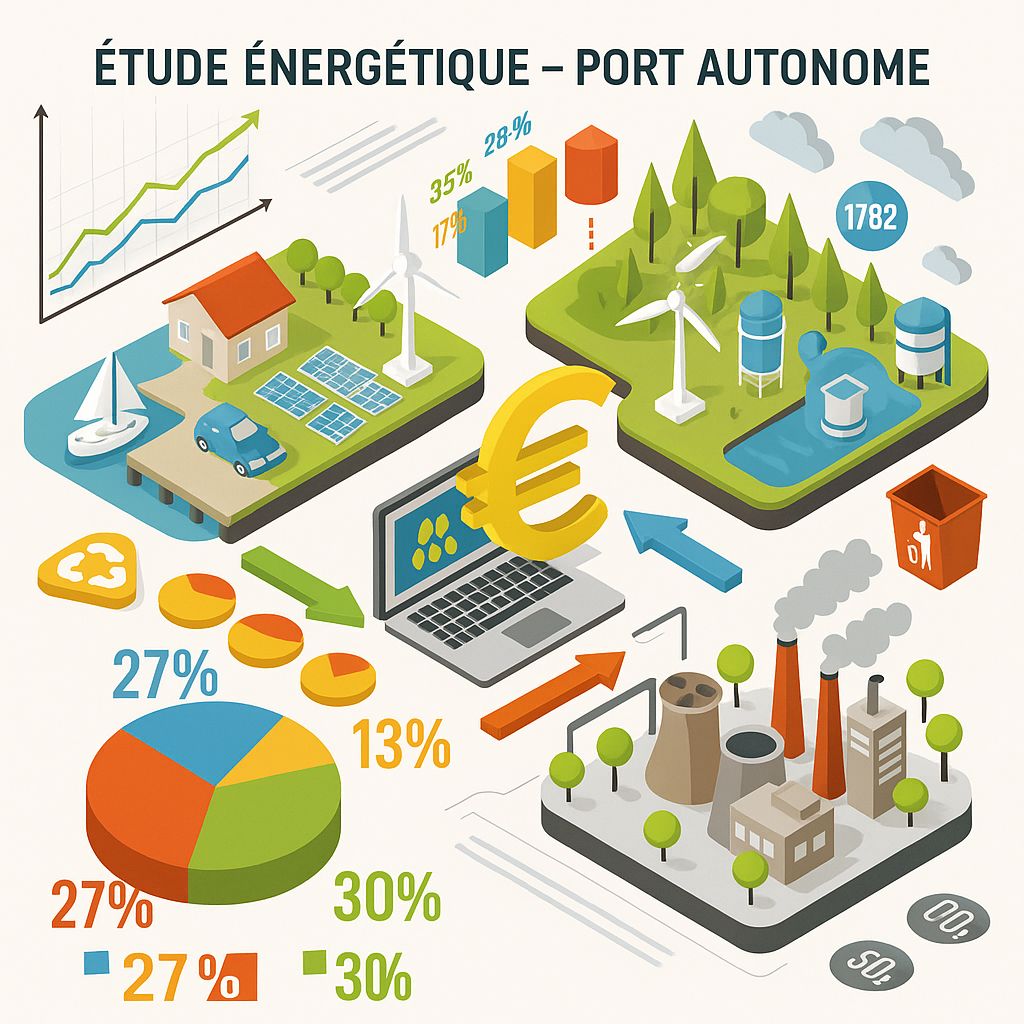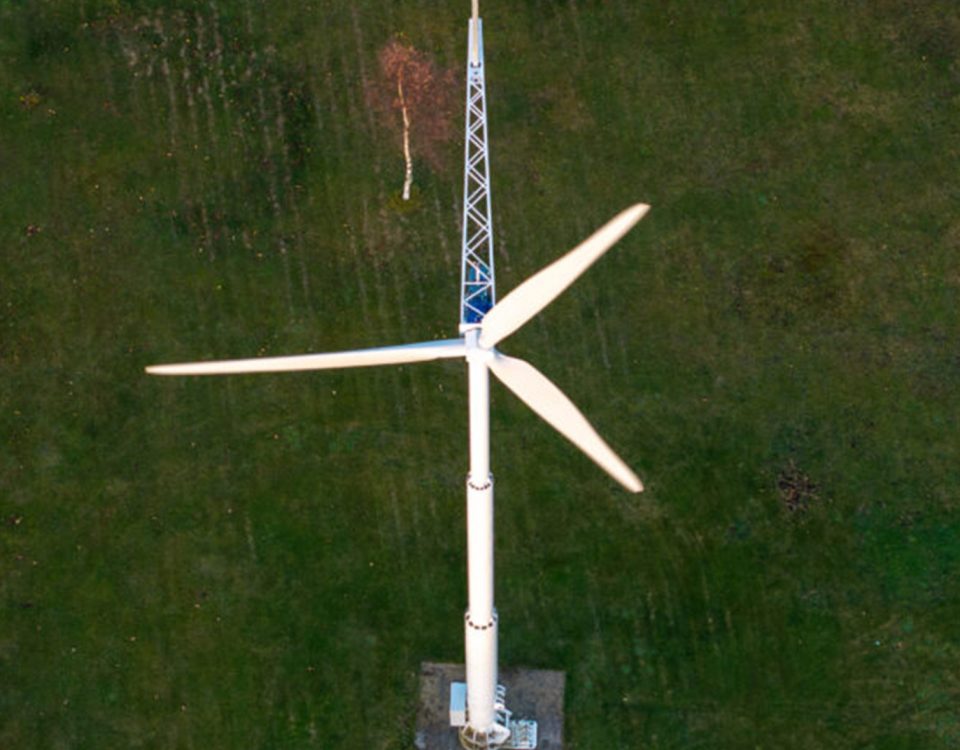A complex port energy challenge
Autonomous ports are facing growing energy needs: electrification of ships at berth, port facilities, logistics, etc. Our mission? To design a renewable energy solution that provides a 30% coverage rate for energy consumed, with an 80% self-consumption rate.
In-depth analysis: understand before acting
Our energy audit began with a detailed analysis of consumption data over 12 months. On-site measurements revealed significant variations depending on the season and the type of ships accommodated:
Seasonal profiles: summer peaks linked to tourism, constant needs for logistics
Consumption of ships at berth: identification of power supply needs
Infrastructure and administrative buildings
This analysis phase was crucial to correctly size the facilities and ensure optimal self-consumption.
Optimal energy mix: wind + solar + batteries
We studied several scenarios before identifying a sustainable solution: wind-solar mix and/or storage.
Why does this mix work? Small-scale commercial wind turbines: harnessing constant offshore winds and photovoltaic panels: seasonal complementarity with wind power.
Result: 50% coverage in green energy production with 90% self-consumption, exceeding initial objectives!
Landscape integration
3D simulations made it possible to visualize the impact of the installations from different perspectives. The small-scale wind turbines blend naturally into the industrial port landscape while affirming the infrastructure’s ecological commitment.
Public acceptability
A public consultation process was successfully conducted: presentations to local residents, participatory workshops, and transparent communication on the environmental benefits.
Safety and Compliance
All port safety standards were met: equipment certification, fire protection, environmental impact studies, and administrative authorizations.
Recyclability: Thinking about the complete life cycle
The selected equipment demonstrates excellent environmental performance:
Wind turbines: 90% of recyclable components (steel, copper, aluminum)
Solar panels: 95% of materials recycled
Tangible benefits
Economic
30% reduction in annual energy bills
Protection against price volatility
Environmental
450 tons of CO2 reduction per year
Contribution to the regional energy transition
Exemplary for other maritime infrastructures
Expertise applicable to all sectors
This methodology is perfectly suited to other areas:
Agriculture: agricultural wind power for farms, cooperatives, irrigation
SMEs and industries: energy cost reduction, CSR compliance
Public authorities: energy autonomy for public buildings
Your renewable energy project
Autonomous port, local authority, SME, industry, or agricultural player? Our expertise in small-scale commercial wind turbines and renewable energies supports you from energy audits to commissioning, ensuring a successful and profitable energy transition.
Contact us to discuss your project and find out how to optimize your energy self-consumption.




